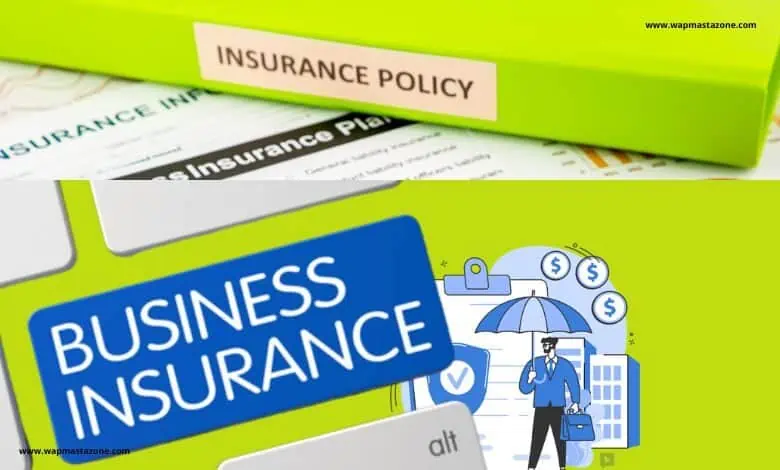Insurance Against Financial Risk
Insurance Against Financial Risk; In an unpredictable world where uncertainties lurk around every corner, financial security becomes paramount. Life is replete with risks, some expected, others unforeseen. While we cannot eliminate all risks, we can certainly mitigate their impact through prudent planning and strategic measures. One such measure is insurance against financial risk, a mechanism designed to safeguard individuals, families, and businesses from potential financial losses due to various contingencies. In this comprehensive guide, we will delve deep into the concept of insurance against financial risk, exploring its significance, types, benefits, and the factors to consider when choosing the right coverage.
Understanding Financial Risk
Financial risk encompasses a broad spectrum of potential threats to one’s financial well-being. These risks can stem from various sources, including health-related issues, accidents, natural disasters, liability claims, property damage, and economic downturns. While some risks are manageable, others can have catastrophic consequences if left unaddressed. For instance, a sudden illness or injury can lead to hefty medical bills, loss of income, and financial strain on the affected individual and their family. Similarly, unforeseen events like fires, floods, or earthquakes can result in substantial property damage, leading to significant financial losses.
The Role of Insurance in Insurance Against Financial Risk
Insurance serves as a vital tool in managing financial risk by providing a safety net against potential losses. At its core, insurance operates on the principle of risk pooling, where individuals collectively contribute premiums to an insurance pool, from which funds are disbursed to cover the losses of those who experience adverse events. By spreading the risk across a large pool of policyholders, insurance companies can effectively manage and mitigate the financial impact of unforeseen circumstances.
Types of Insurance Against Financial Risk
Insurance products come in various forms, each tailored to address specific types of financial risks. Some of the most common types of insurance include:
- Life Insurance: Designed to provide financial protection to the policyholder’s beneficiaries in the event of their death. Life insurance policies come in several forms, including term life, whole life, and universal life insurance.
- Health Insurance: Covers medical expenses incurred due to illness, injury, or preventive care. Health insurance policies may include coverage for hospitalization, prescription drugs, doctor visits, and other healthcare services.
- Property Insurance: Protects against damage to physical property, including homes, vehicles, and personal belongings. Property insurance policies typically cover losses resulting from fire, theft, vandalism, and natural disasters.
- Liability Insurance: Offers protection against claims or lawsuits filed against the policyholder for damages or injuries caused to third parties. Common types of liability insurance include auto liability, professional liability (errors and omissions insurance), and general liability.
- Disability Insurance: Provides income replacement benefits to individuals who are unable to work due to a disabling illness or injury. Disability insurance ensures that policyholders continue to receive a portion of their income to cover living expenses during periods of incapacity.
- Business Insurance: Offers coverage for businesses against various risks, including property damage, liability claims, business interruption, and employee-related risks. Business insurance policies may include commercial property insurance, general liability insurance, and workers’ compensation insurance.
Benefits of Insurance Against Financial Risk
The benefits of insurance against financial risk are manifold, extending beyond mere financial protection. Some key advantages include:
- Financial Security: Insurance provides peace of mind by offering financial security to individuals and families, knowing that they are protected against unforeseen events that could potentially derail their financial stability.
- Risk Transfer: By purchasing insurance, individuals and businesses can transfer the financial risk of certain events to an insurance company, thereby reducing their exposure to potential losses.
- Asset Protection: Insurance helps safeguard assets against unexpected threats, such as property damage, theft, or liability claims. Without adequate insurance coverage, individuals risk losing their hard-earned assets in the event of a disaster or legal dispute.
- Economic Stability: Insurance plays a crucial role in maintaining economic stability by enabling businesses to recover from setbacks more quickly and individuals to withstand financial shocks without resorting to drastic measures.
- Promotion of Entrepreneurship: Access to insurance coverage encourages entrepreneurship and innovation by providing entrepreneurs with the confidence to take calculated risks and pursue their business ventures without fear of financial ruin.
- Social Welfare: Insurance fosters social welfare by promoting collective responsibility and mutual assistance among members of society. By sharing risks through insurance pools, communities can support those in need and prevent individuals from falling into poverty due to unexpected hardships.
Factors to Consider When Choosing Insurance Coverage
Selecting the right insurance coverage requires careful consideration of several factors, including:
- Coverage Needs: Assess your specific insurance needs based on factors such as your age, health status, financial obligations, and personal circumstances. Tailor your coverage to address potential risks and vulnerabilities effectively.
- Cost vs. Benefits: Evaluate the cost of insurance premiums against the benefits provided by the policy. Consider factors such as deductibles, coverage limits, and exclusions to determine the overall value proposition of the insurance plan.
- Insurance Provider: Research different insurance companies to assess their reputation, financial strength, customer service quality, and claims processing efficiency. Choose a reputable insurer with a track record of reliability and customer satisfaction.
- Policy Features: Review the terms and conditions of the insurance policy, including coverage scope, exclusions, limitations, and optional add-ons. Ensure that the policy offers comprehensive protection against relevant risks and aligns with your preferences and priorities.
- Claims Process: Understand the claims filing process and the insurer’s responsiveness in handling claims. Opt for an insurance company known for its prompt and fair claims settlement practices to avoid unnecessary delays and disputes.
- Reviews and Recommendations: Seek recommendations from friends, family members, or financial advisors who have firsthand experience with the insurance provider or specific policy you’re considering. Online reviews and ratings can also offer valuable insights into the insurer’s performance and customer feedback.
Conclusion on Insurance Against Financial Risk
In an uncertain world fraught with financial risks, insurance serves as a critical safeguard against unforeseen events that could jeopardize one’s financial well-being. By understanding the various types of insurance coverage available, weighing the benefits against the costs, and selecting the right policies to meet their needs, individuals, families, and businesses can fortify themselves against potential financial hardships. While insurance cannot eliminate all risks, it provides a valuable layer of protection and peace of mind, allowing individuals to navigate life’s uncertainties with greater confidence and resilience. As Benjamin Franklin aptly said, “An ounce of prevention is worth a pound of cure” – investing in insurance today can secure a brighter and more secure future tomorrow.






